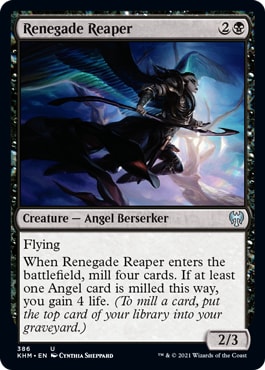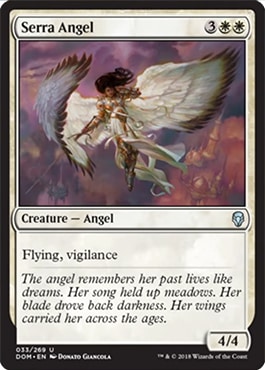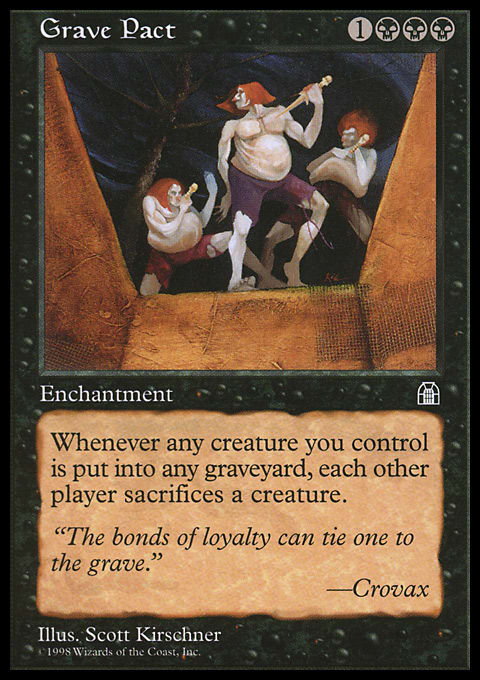While we haven't seen the full Kaldheim spoiler yet, enough Angels have pushed out from behind the curtain at the leak-o-sphere to give us an idea of what the deck might play like.
Look at these two cards from the known Kaldheim variants. One of them is pretty exciting... One of them could be. As neither card is even Rare - let alone Mythic Rare - they are the kinds of cards you might be able to lace together in Limited. So maybe the Angels linear push is supposed to thrive there [only].
But let's play a game. There are going to be a lot of tools. Some of them - like Youthful Valkyrie - make for some awfully pregnant possibilities. Renegade Reaper is the kind of card that isn't blowing the door down on rate, but might have enough synergistic belonging to make the cut. If Angels is good enough, it is going to be because cards like Youthful Valkyrie made it so. If Angels is good enough, it might be worth a little of our brain power to make sure there aren't eight if not nine appropriately costed creatures forcing Renegade Reaper out of the playables pile.
But regardless?
There are things in common here. These cards have...
- Flying
- Toughness - at least to start - greater than their power
What if Angels is a metagame deck?
Mightn't that be something worthwhile - or at least fun - to explore? What if it's a Hate Bears deck, where what it is hating is the beatdown? Let's assume that its plan will be to gum up the battlefield at par casting costs, accumulate advantages (either via the sum total of its synergies, as with Youthful Valkyrie; or good old card advantage); and then exploit flying to break the battlefield stalemate in one or two big swings.
What would Angels need to actually be good enough?
- Raw Power
- A Reason to Exist
- Favorable Metagame Conditions
- Space to Develop
- A Way to Avoid Being Overrun
Raw Power
Let's talk a second about raw power.
Let's talk about it via the lens of another card game: Spades.
I spent the summers of most of my high school years - and a good number of my college ones - carrying golf bags. It's good money, if somewhat inconsistent. Other kids my age might clock into a retail job at a McDonalds or a bookstore and make steady money... If not great money per hour. I might have made $200 on a good day... But I sat around waiting long hours for any work at all on a slow one.
So, I supplemented my income - and, truth be told, just passed the time - mastering Spades in the caddy yard. If you don't know how to play Spades, for our purposes the higher the card the more likely it will win a hand in suit.
So, a ten of Clubs is going to beat a four of Clubs will beat a three of Clubs. But if the suit is Clubs, even a king of Diamonds will be wasted.
The only exception is Spades. No matter what the presumptive suit is, any Spade will beat everything else. So, a lowly three of Spades will beat up the Ace of Hearts! Or Diamonds. Or Clubs (as well as everything worse than an Ace). It will not, however, beat a four of Spades.
This game therefore operates with two variables:
- Suit (i.e. Clubs, Diamonds, Hearts, and of course Spades)
- Rank (e.g. two, three, four, King)
In Magic, we tend to be obsessed about the "rank" of a card. How good is that card? How much rate is packed into it? How powerful is that deck in the abstract? These are all "rank" questions.
But in many formats, the "suit" of a card or a deck can be a superior predictor of its success.
This card is the classic. Gaining main deck popularity around 1995-1996, Whirling Dervish might not have looked like much. And certainly in a Standard including both Swords to Plowshares and Lightning Bolt it shouldn't have been. But because Mono-Black discard and Necropotence decks were so popular, Whirling Dervish acted like an eight of Spades. Not embarrassing on card power, but nothing you want to bet the house on in a fair fight.
Only it wasn't there for fair fights. It was the eight of Spades.
Angels, if Angels is going to be good at all, is going to have to learn from Spades. The baseline is that the kinds of decks it can be good against will have to be popular enough to warrant a spot in the metagame (suit). But it is also going to have to have enough raw power to perform in the abstract.
Youthful Valkyrie is a good indication that Angels might have such sufficient oomph. That is, a fast [enough] and reliable path to victory.
A Reason to Exist
One of the grand deck-building concepts we talk about is the Prime Rule or the Prime Directive. Basically, don't just be a bad something else. A deck has to be more than that. It has to be something; have a reason to exist.
For Angels to pass this minimum bar, it will have to have such a reason. Without even seeing the full spoiler, I can luckily already imagine two:
"The beatdown decks Angels is good against must be popular enough to warrant its presence in tournaments," and
"Wow, some of these Angels interactions are actually pretty cool."
This card could - in some metagames - be a pretty effective source of inevitability. It's worth mentioning that Renegade Reaper can flip Cleaving Reaper over, pay you four life, fulfill Cleaving Reaper's minimum for re-buys, and give you fuel to spare.
You will have actually gained more life than you spent; so, you'll be up a card with a 2/3 in play; with one more life to show for it! Bravo.
Card advantage is one thing. At some level, everyone has card advantage. Red Decks can have card advantage. But card advantage and life gain and recursion-driving Inevitability? That might be a reason to exist! But wait! There's more!
This seems like THE reason for Angels to want to exist. This card is essentially:
I think you really, really want to get Rampage of the Valkyries out against fair creature decks. For one thing, it gives you an awesome 4/4 to block with or potentially get the Grave Pact action going. If you have any kind of a normal draw in the mid-game it will be impossible for fair creature decks to keep pace. Either your 4/4 or other Angels will be punching down against oncoming attackers, punching up (to set up the trigger), or trading - almost by definition - favorably during blocks.
While Rampage of the Valkyries appears, on its face, to be the best against fair creature decks, it seems like it would bedevil certain control ones. It doesn't matter how big your planned finisher is: If they chump it (and it is alone) it will not be long for this world.
Favorable Metagame Conditions
Put simply, other folks have to be cooperating. Or put another way, the metagame has to unfold in such a way that there are a lot of decks that Angels might be good against... Enough to warrant playing a deck whose "rank" might be low; who exists on the basis of predatory "suit" advantages.
Imagine Angels is a mid-range creature deck with a lot of synergy and a little bit of grinding card advantage. That deck is going to be much Much MUCH worse pure attack deck than Mono-Red or Gruul with [presumably larger] haste creatures and more, and more immediate, starting power.
But from the sunny side? How about Youthful Valkyrie and Righteous Valkyrie?
To me, both of these cards are potentially good enough; and presumably good enough as long as there are enough Angels to fill in the rest of the deck.
Forget, for a second, about Righteous Valkyrie's buff ability. How would you like to play against a deck that was 1) making one reasonable play per turn, and 2) buffing Youthful Valkyrie every turn, AND 3) gaining four life every turn? Just making its reasonable plays?
If you're out there making a 4/4 yourself but they're making a 4/4 Grave Pact that makes their 2-drop bigger and gains them four life... And they're doing this every turn? You're going to be in one of two caps.
Either you don't care... You don't care because you're a Wrath of God-type deck that sees all creatures as meat waiting to be thrown into the grinder; two-or-more at a time (even worse if you're playing Ugin, the Spirit Dragon). True non-interactive combo decks might also fall into this category.
Otherwise, you likely care A LOT. You care because life points mean cards to you; and combat - your primary way to win - becomes increasingly difficult the bigger and more Edit-packing the opposing army becomes. That is why Angels looks like it might be terrifying for fair creature decks!
Space to Develop
Linear decks like Angels tend to need more space (and more luck) than "regular" creature decks. That's because their cards tend to be less individually powerful. Better in tandem, but often taxed by having to be drawn in the right order. We've talked about Youthful Valkyrie a bit in this article. It's not hard to see how a 1/3 for two mana might be effective against 2/1 and 2/2 attackers... And great in a deck full of other Angels! But imagine they are the last four cards of your deck. Not only are they way off curve there, they never have the opportunity to be buffed because almost by definition they can only pay you off if you draw and play them before your other Angels.
Consider a comparatively extreme case, where you're somehow able to untap with a Starnheim Asprirant in play on turn four...
Might you slam four copies of Renegade Reaper - WHILE NETTING HELLA LIFE - they very next turn? If given sufficient space to develop, linear decks can often bring you to untold heights.
A more realistic spot might just be to play one 1 mana Renegade Reaper, pick up your four life; get a little lucky; then re-buy (and, thanks to Starnheim Aspirant) play Cleaving Reaper all the next turn.
This was a PT-winning Standard Staple a few years back:
Anyway, 2 mana worth of cost reduction puts Starnheim Aspirant in All-Star range.
Unfortunately?
Bonecrusher Giant also costs three total mana. Which means the potentially powerful (but generally unwieldy) Starnheim Aspirant probably won't see main deck Angels play.
A Way to Avoid Being Overrun
This is the worst.
You get your draw. Yay!
They have a Robber of the Rich. You slow it down with your 1/3 (soon to be something much bigger, presumably).
They have Questing Beast... But it's terrified to go toe-to-toe with your Serra token from Rampage of the Valkyries. As the turns of not-attacking progress, even your Youthful Valkyrie would take down the Legendary Beast.
Then all of a sudden? You lose in one big attack. Embercleave is the reason. You had them down, but not out. That Questing Beast did, predictably, nine.
To be good enough, Angels will have to be able to win the games it is "supposed" to win; and part of that is simply not losing to the super high leverage cards in games where it is currently ahead. If the enemy is Embercleave, Angels will have to figure out how to fit instant speed removal without the loss of too much internal synergy. Every non-Angel business spell is one fewer hit for Renegade Reaper, after all.
The problem is, Primal Might could be the late-game catalyst; or newcomer Blessing of Frost.
It's difficult for a linear creature deck to have answers to all those very different kinds of game-breakers. Let alone the "control" ones! But to be good?
LOVE
MIKE






























